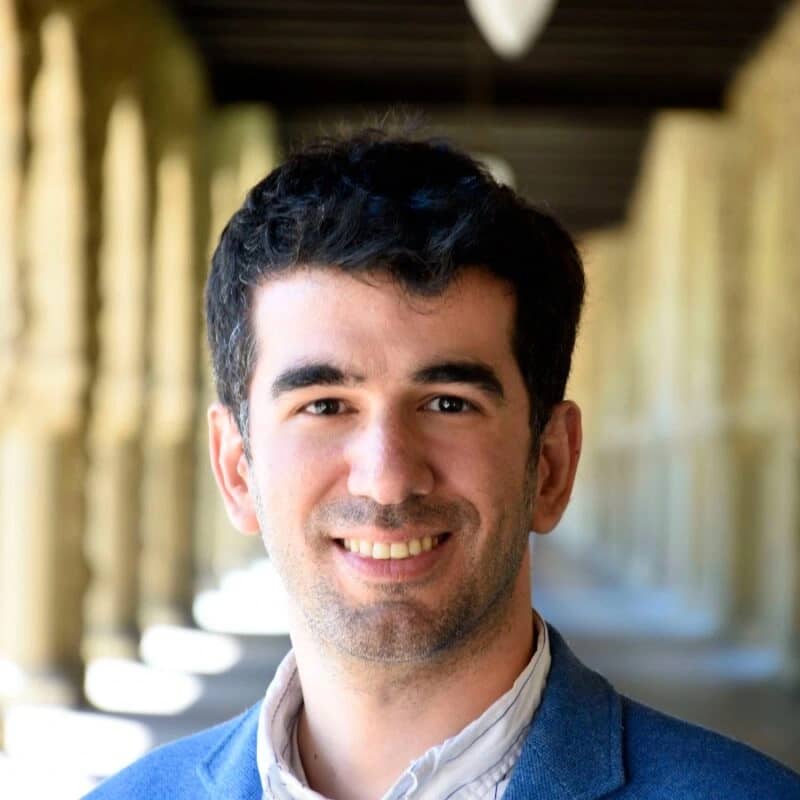订阅 wiki
Share wiki
Bookmark
Nicolas Kokkalis
0%
Nicolas Kokkalis
Nicolas Kokkalis 是 Pi Network 的联合创始人兼技术主管,Pi Network 是一个旨在让更广泛的受众能够访问 区块链 技术的 加密货币 项目。他拥有计算机科学和分布式系统背景,曾参与多项创新,包括开发 智能合约 和大规模社交应用程序的框架。[2] [5]
教育
Kokkalis 于 2002 年毕业于克里特大学,获得计算机科学学士学位。 后来,他获得了多伦多大学的计算机科学硕士学位,并于 2008 年获得了斯坦福大学的计算机工程博士学位。[3]
职业生涯
Kokkalis 的学术生涯始于计算机科学的学士和硕士学位,最终在斯坦福大学获得博士学位,并在 2013 年至 2018 年期间继续担任计算机科学系的博士后研究员。他的研究重点是分布式系统和人机交互,包括开发容错分布式系统上的 智能合约 框架,以及创建拥有数百万用户的社交应用程序。
2018 年,他成为斯坦福大学第一门去中心化应用程序课程 CS359B 的讲师。同年晚些时候,Kokkalis 联合创立了 Pi Network,担任技术主管,旨在扩大 加密货币 的可访问性。在此之前,他曾于 2010 年至 2018 年担任 StartX 的创始团队成员和首席技术官,并于 2009 年至 2010 年担任 Gameyola Inc. 的创始人。他早期的职位包括在多伦多大学、FORTH 计算机科学研究所和克里特大学担任研究助理。[2] [6]
Pi Network
Pi Network 由 Kokkalis、Chengdiao Fan 和 Vincent McPhillip 于 2019 年 3 月 14 日推出,旨在创建一种更易于访问的、移动优先的 加密货币。该项目受到 比特币 的启发,旨在消除金融交易中的第三方中介,同时解决限制 加密货币 主流采用的障碍。 Pi Network 没有使用 比特币 能源密集型的 挖矿 过程,而是开发了一种基于社交安全圈的 共识机制,允许用户通过移动应用程序以最小的资源消耗来验证交易。这个想法是由创始人在斯坦福大学的经历塑造的,包括 Kokkalis 关于 去中心化应用程序 的课程以及与其他教职员工的讨论。他们的研究重点是使 区块链 技术更加用户友好,并探索金融以外的应用,包括医疗保健和身份管理。该团队强调分布式系统、密码学和社会科学领域的跨学科合作,以改进 Pi Network 的开发。[1]
访谈
开放主网
在 ivienoelCT YouTube 频道上,Kokkalis 讨论了该项目的历程,从其在斯坦福大学的学术起源到 2018 年的成立。他解释说,自 2021 年 12 月以来,Pi Network 一直在“封闭的 主网”上运行,该阶段旨在构建实用程序并开发平台的生态系统,而不会受到外部干扰。封闭的 主网 允许 Pi 通过 KYC 专注于用户身份验证,利用人工智能和人工支持。Kokkalis 强调,该网络将过渡到开放的 主网,从而实现更广泛的迁移和进一步的生态系统开发。他还强调了 Pi 基于移动设备的 挖矿 系统以及使用密码短语进行 区块链 身份验证,确保安全性的同时解决用户体验挑战。[10]
关于 Pi Network
在关于 Pi Network 的讨论中,Fan 和 Kokkalis 分享了对该平台独特功能和未来潜力的见解。Pi Network 通过针对普通人而不是投资者来区分自己,提供了一种易于访问的免费 挖矿 过程,不需要技术专业知识或大量资金投入。它的实用代币 Pi 可以在移动设备上挖掘,允许用户参与一个使用 Pi 购买商品和服务的生态系统。与 比特币 能源密集型的 工作量证明 系统不同,该平台采用低能耗共识算法。Pi Network 从未出售过代币;相反,它通过传统的创业股权融资。该网络打算在全球范围内扩张,旨在为数百万用户完成 KYC,为过渡到其 主网 做准备。尽管 加密货币 市场面临挑战,但 Pi Network 仍然保持稳定,其内部生态系统不受外部波动的影响。[11]
Pi Network 的未来
在接受 Oryiman Networks 的采访时,Kokkalis 在一次现场采访中讨论了 Pi Network 的进展和未来,重点介绍了 12 月份主网的启动以及用户正在进行的迁移。他解释了封闭的网络设计,该设计限制了外部连接,以专注于开发内部实用程序和社交应用程序。Kokkalis 描述了 Pi 独特的 挖矿 系统,该系统不像传统的 工作量证明 系统那样依赖电力,而是使用基于信任关系的联合 共识机制。他还表示愿意与其他技术进行跨链集成和协作。讨论涵盖了 加密货币 行业面临的挑战,包括市场波动以及苹果等科技巨头新政策的影响。Kokkalis 强调了 Pi 的弹性,特别是通过其封闭的网络模型,该模型可以保护项目免受市场低迷的影响,即使在 熊市 期间也能确保一致的运营。[12]
小组讨论
区块链小组
2017 年硅谷未来论坛小组讨论了 区块链 技术和人群销售(ICO)的新兴趋势,ICO 作为软件产品筹集资金的一种方法正迅速普及。小组成员包括 Kokkalis、George Li (WeTrust)、Hermann Liu (Andra Capital, Arbor Ventures)、Benedict Chan (BitGo) 和 Grant Fondo (Goodwin Procter LLP)。他们从多个角度探讨了 ICO 的影响,强调了它们如何为风险投资等传统融资方法提供去中心化、全球化和高效的替代方案。他们指出,ICO 通常涉及发行代币以换取资本,这些代币可能代表应用程序访问或其他承诺。小组成员还讨论了 ICO 的演变,追溯了它们在早期 区块链 项目中的起源,例如 Mastercoin 和 以太坊。他们强调了 ICO 的日益普及,越来越多的老牌公司进入该领域。虽然 ICO 消除了创始人股权稀释的问题,但它们也施加了 智能合约 限制,可能会限制业务灵活性。小组还讨论了监管问题,特别是代币是否被视为证券,这引发了法律和税务问题。总的来说,小组成员承认 ICO 领域存在风险和不确定性,但仍然对 区块链 的变革潜力持乐观态度。[13]
发现错误了吗?
